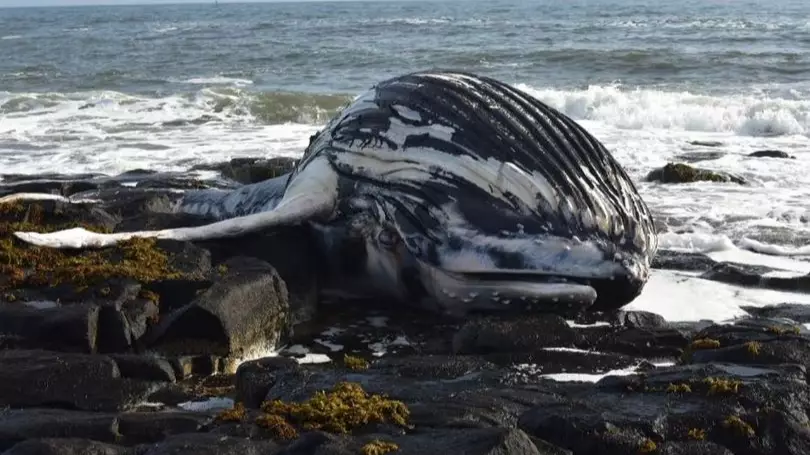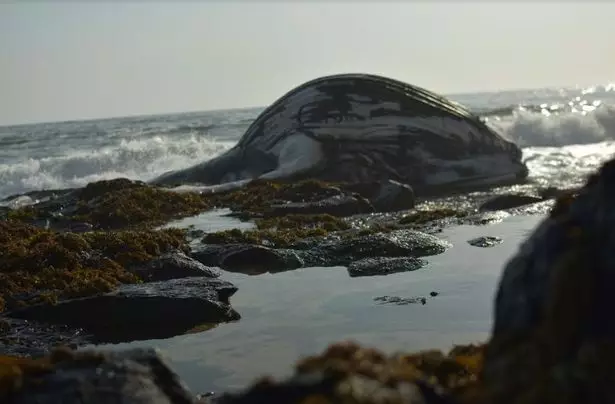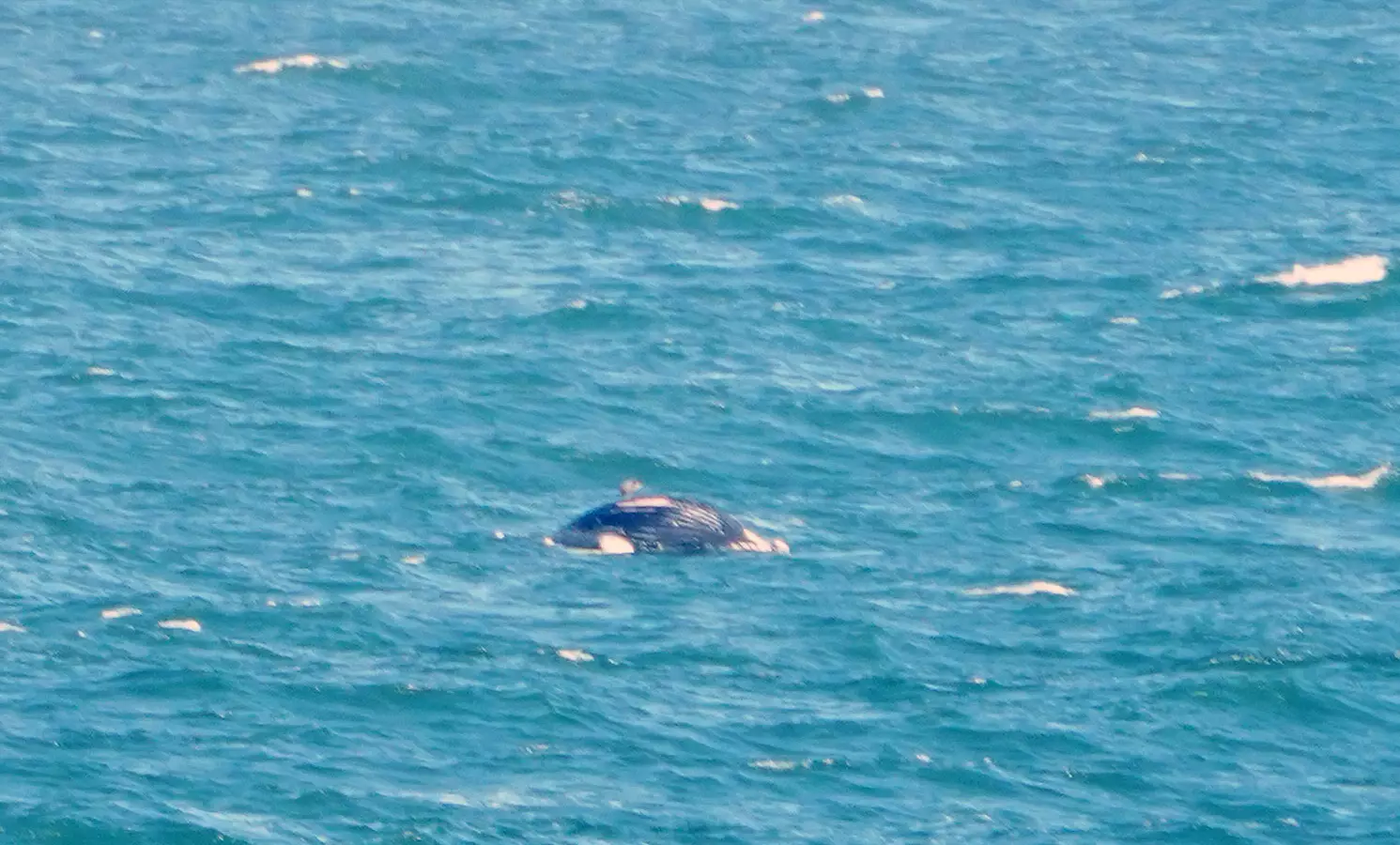
The body of a huge humpback whale has washed up on a beach in Northumberland.
The dead whale was spotted between Craster and Dunstanburgh Castle earlier this morning.

Two humpback whales have been sighted in the north sea last week - one badly injured and the other dead.
Advert
The person who found the whale told the Chronicle Live he believes this is the same dead humpback that was spotted near Whitley Bay and then again at North Shields last week.
He said it was unlikely to be the same animal as the injured whale spotted at Tynemouth, as it doesn't appear to have the same visible injuries.
Experts will now carry out tests to try to determine how the creature died.
The number of whales and dolphins washing up on British shores is rising, according to experts.
Advert
The figures from 2017 show a whopping 1,000 whales, dolphins and porpoises have been stranded on the coastline of the UK - the highest number of any year since records began.

While a staggering 4,896 have died on beaches and coastal areas between 2011 and 2017.
Experts from the Zoological Society of London say the deaths were due to a number of causes including plastic, fishing and diseases.
Advert
However, the experts are unclear why the number is rising, but think, again, it's probably down to a number of reasons, such as increases in whale and dolphin populations.
Speaking to the BBC Rob Deavill who led the study, said: "Strandings aren't actually in and of themselves bad news.
"There's a misconception that we're trying to stop strandings - we're not, we're trying to learn more about those that are due to human activities and then try and mitigate those where we can."
Scientists have been monitoring these strandings since the 1990s and regularly carry out autopsies on animals to find out the cause of death and hopefully gain a better understanding.
Advert
Deavill added: "Ultimately we want to make sure that our children and our children's children can still be out there and see these animals in the wild as we've been lucky to do so when we are alive."
Featured Image Credit: Scott Simcox